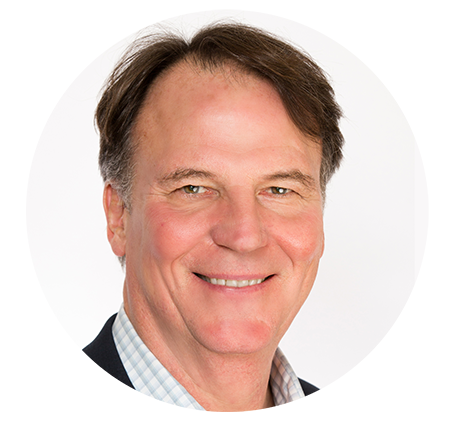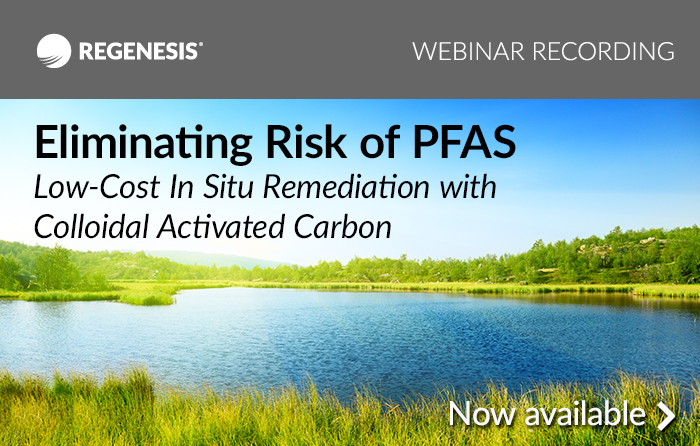In this webinar we are pleased to have a special presentation by Scott Wilson, President & CEO of REGENESIS. In this presentation he discusses eliminating risk of PFAS contamination in soil and groundwater via low-cost in situ remediation with colloidal activated carbon. By coating flux zones of an aquifer with colloidal activated carbon, a permeable sorption barrier is created in situ, purifying groundwater as it passively migrates. PFAS constituents from up-gradient source zones are rapidly sorbed to the carbon and removed from the mobile dissolved phase. By removing PFAS from the mobile phase, the route of exposure to down-gradient receptors is eliminated, thereby eliminating the down-gradient public health risk associated with PFAS.
This webinar addresses how:
- In situ remediation with colloidal activated carbon eliminates risk of PFAS at a low cost
- Colloidal carbon isotherm data and sorption test data for PFAS indicate excellent sorption capability and increased performance with decreasing carbon particle size
- A single application of colloidal activated carbon at an actual field case site resulted in orders of magnitude reduction in PFAS groundwater concentrations to below USEPA health advisory levels
About the Presenter:
 Scott Wilson
President & CEO, REGENESIS
Scott Wilson is the President & CEO of REGENESIS. Mr. Wilson has extensive experience in the development and application of advanced technologies for groundwater and soil restoration. He is a widely published expert with over 30 years experience designing, installing and operating a broad range of remediation technologies. He has expertise in project management and has directed the successful completion of large industrial remediation programs under State and Federal regulatory frameworks. At REGENESIS, on specific projects, he plays an active role in technical oversight and program management to ensure conformance with customer expectations. He was appointed to the USEPA Bioaction Committee to provide technical guidance and served for eight years on the faculty of the National Water Well Association (now the NGWA) where he taught on remediation strategies for groundwater pollution. He is currently an appointee to the Superfund Task Force of the National Ground Water Association where he is responsible for liaison to the US EPA for issues related to CERCLA and the remediation of Superfund sites.
Scott Wilson
President & CEO, REGENESIS
Scott Wilson is the President & CEO of REGENESIS. Mr. Wilson has extensive experience in the development and application of advanced technologies for groundwater and soil restoration. He is a widely published expert with over 30 years experience designing, installing and operating a broad range of remediation technologies. He has expertise in project management and has directed the successful completion of large industrial remediation programs under State and Federal regulatory frameworks. At REGENESIS, on specific projects, he plays an active role in technical oversight and program management to ensure conformance with customer expectations. He was appointed to the USEPA Bioaction Committee to provide technical guidance and served for eight years on the faculty of the National Water Well Association (now the NGWA) where he taught on remediation strategies for groundwater pollution. He is currently an appointee to the Superfund Task Force of the National Ground Water Association where he is responsible for liaison to the US EPA for issues related to CERCLA and the remediation of Superfund sites.


